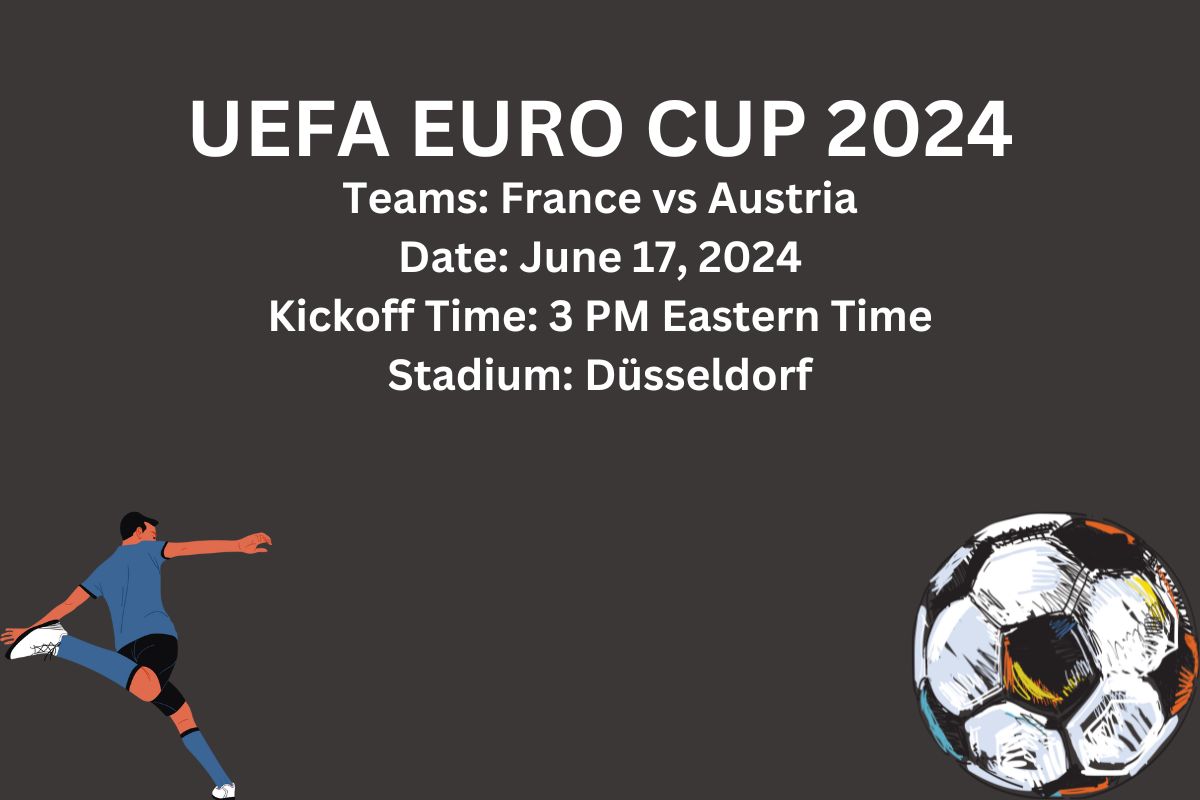Historical Context

France vs austria – The relationship between France and Austria has been marked by centuries of rivalry and conflict, as well as periods of alliance and cooperation. The two countries have fought numerous wars over territory, power, and ideology, shaping the political and cultural landscape of Europe.
The rivalry between France and Austria, a tale of clashing empires and enduring animosity, has left an indelible mark on European history. From the bloody battlefields of the Napoleonic Wars to the diplomatic maneuvers of the Concert of Europe, the relationship between these two nations has been fraught with conflict and intrigue.
For a deeper understanding of this complex and fascinating topic, explore the comprehensive article on france austria.
One of the key events in the history of the Franco-Austrian rivalry was the Thirty Years’ War (1618-1648), a devastating conflict that ravaged Central Europe. France and Austria fought on opposite sides of the war, with France supporting the Protestant cause and Austria supporting the Catholic cause. The war ended with the Peace of Westphalia, which established the principle of religious tolerance in Europe and weakened the power of the Habsburg dynasty, which ruled Austria.
In the historic clash between France and Austria, the battle lines were drawn and the stakes were high. As the conflict raged, some in France sought solace in cryptic diversions like crossword puzzles. Crosswords offered a temporary escape from the horrors of war, providing a mental challenge that allowed them to focus on something other than the bloodshed.
Yet, even in the midst of this intellectual refuge, the echoes of the conflict reverberated, shaping the very words and phrases that filled the crossword grids.
Key Figures, France vs austria
- Louis XIV of France (1638-1715): Known as the “Sun King,” Louis XIV was a powerful and ambitious monarch who sought to expand French territory and influence. He fought several wars against Austria, including the War of the Spanish Succession (1701-1714), which ended with the Treaty of Utrecht.
- Maria Theresa of Austria (1717-1780): Maria Theresa was the Habsburg empress who ruled Austria during the War of the Austrian Succession (1740-1748). She fought against Prussia and France, and her defeat led to the loss of Silesia to Prussia.
- Napoleon Bonaparte (1769-1821): Napoleon was a brilliant military commander who led France to victory in numerous wars. He defeated Austria in several battles, including the Battle of Austerlitz (1805), and forced Austria to cede territory to France.
Cultural Differences: France Vs Austria

France and Austria, neighboring countries in Europe, possess distinct cultural traditions and values that have shaped their national identities. These differences manifest in various aspects of life, including language, cuisine, art, and music.
Language
France is renowned for its French language, a Romance language spoken by the majority of its population. French is also widely used in international diplomacy and culture. In contrast, Austria’s official language is German, a Germanic language shared with several other countries. The linguistic divide between the two nations reflects their historical and cultural connections.
Cuisine
French cuisine is celebrated worldwide for its sophistication and elegance. It emphasizes fresh ingredients, sauces, and pastries. On the other hand, Austrian cuisine is known for its hearty dishes, such as schnitzel and strudel. The use of spices and the influence of Central European culinary traditions differentiate Austrian cuisine from its French counterpart.
Art
French art has a long and illustrious history, marked by movements such as Impressionism and Cubism. French artists are renowned for their innovative and expressive techniques. Austrian art, while influenced by French styles, has its own distinct character. The Vienna Secession movement, known for its Art Nouveau aesthetic, is a notable example.
Music
France has produced influential composers such as Claude Debussy and Maurice Ravel. French music is known for its romantic and lyrical qualities. Austria, on the other hand, is famous for its classical music tradition. Composers like Wolfgang Amadeus Mozart and Ludwig van Beethoven have left an enduring legacy on the world of music.
Economic Comparison

France and Austria are two of the most developed countries in Europe. Both countries have strong economies, but there are some key differences between them.
One of the most significant differences between the two countries is their size. France is much larger than Austria, with a population of over 67 million people compared to Austria’s 8.9 million. This difference in size is reflected in the two countries’ GDPs. France’s GDP is over $2.9 trillion, while Austria’s is just over $477 billion.
Another key difference between the two countries is their unemployment rates. France’s unemployment rate is currently 7.4%, while Austria’s is just 4.5%. This difference is likely due to a number of factors, including the size of the two countries’ economies and the different industries that they specialize in.
France and Austria are both members of the European Union, and they have both benefited from the economic integration that has taken place within the EU. However, the two countries have also been affected by the global economic crisis. In recent years, both countries have seen their GDP growth slow down, and they have both had to implement austerity measures.
Despite the challenges that they have faced, France and Austria remain two of the most prosperous countries in Europe. Both countries have strong economies, and they are both well-positioned to continue to grow in the years to come.
GDP
France has a larger GDP than Austria, with a GDP of over $2.9 trillion compared to Austria’s $477 billion. This difference in GDP is due to a number of factors, including the size of the two countries’ populations and the different industries that they specialize in.
France is a major manufacturing country, and it is also a major exporter of agricultural products. Austria, on the other hand, is more specialized in services, and it is a major tourist destination.
Unemployment Rates
France’s unemployment rate is currently 7.4%, while Austria’s is just 4.5%. This difference is likely due to a number of factors, including the size of the two countries’ economies and the different industries that they specialize in.
France has a larger economy than Austria, and it is also more diversified. This means that there are more jobs available in France, and it is easier for people to find work. Austria, on the other hand, is more specialized in services, and it is more vulnerable to economic downturns.
Trade Patterns
France and Austria are both members of the European Union, and they both trade extensively with other EU countries. However, there are some differences in their trade patterns.
France is a major exporter of agricultural products, while Austria is a major exporter of manufactured goods. France also exports a significant amount of services, while Austria exports a smaller amount of services.
The global economic crisis has had a negative impact on the trade patterns of both France and Austria. In recent years, both countries have seen their exports decline. However, both countries are still major trading nations, and they are both well-positioned to continue to grow in the years to come.
Impact of Globalization
Globalization has had a significant impact on the economies of both France and Austria. Globalization has led to increased trade and investment, and it has also led to increased competition.
France and Austria have both benefited from globalization. Increased trade has led to lower prices for consumers, and it has also led to increased economic growth. However, globalization has also led to some challenges. Increased competition has led to job losses in some industries, and it has also led to increased inequality.
Overall, globalization has had a positive impact on the economies of both France and Austria. However, it is important to note that globalization has also led to some challenges. Both countries need to continue to work to address these challenges and ensure that the benefits of globalization are shared by all.
The rivalry between France and Austria, two European powerhouses, has been a constant throughout history. From the Napoleonic Wars to the Franco-Prussian War, these nations have clashed on countless battlefields. However, amidst the turmoil and bloodshed, there have been moments of unexpected triumph.
Like the time Richard Carapaz , an Ecuadorian cyclist, stunned the world by winning the 2019 Giro d’Italia. His victory, a beacon of hope in a conflict-ridden world, served as a reminder that even in the darkest of times, human spirit can prevail.
And so, the rivalry between France and Austria continues, a complex tapestry of conflict and triumph, forever intertwined with the stories of those who have lived and died within its embrace.
The match between France and Austria was a thrilling spectacle, with both teams showcasing their prowess on the field. Amidst the fierce rivalry, the eyes of the cycling world turned to Richard Carapaz , the Ecuadorian rider who had triumphed at the Tour de France.
His presence served as a reminder that even in the midst of international competition, individual excellence could shine through.
The rivalry between France and Austria has a long and bloody history, dating back to the 16th century. In recent years, the two countries have clashed on the cycling circuit, with riders like Gino Mader emerging as stars. Mader, a Swiss rider, has had a breakout season in 2023, winning a stage of the Tour de France and finishing second overall in the Vuelta a España.
His success has helped to rekindle the rivalry between France and Austria, and the two countries are sure to be battling it out for years to come.